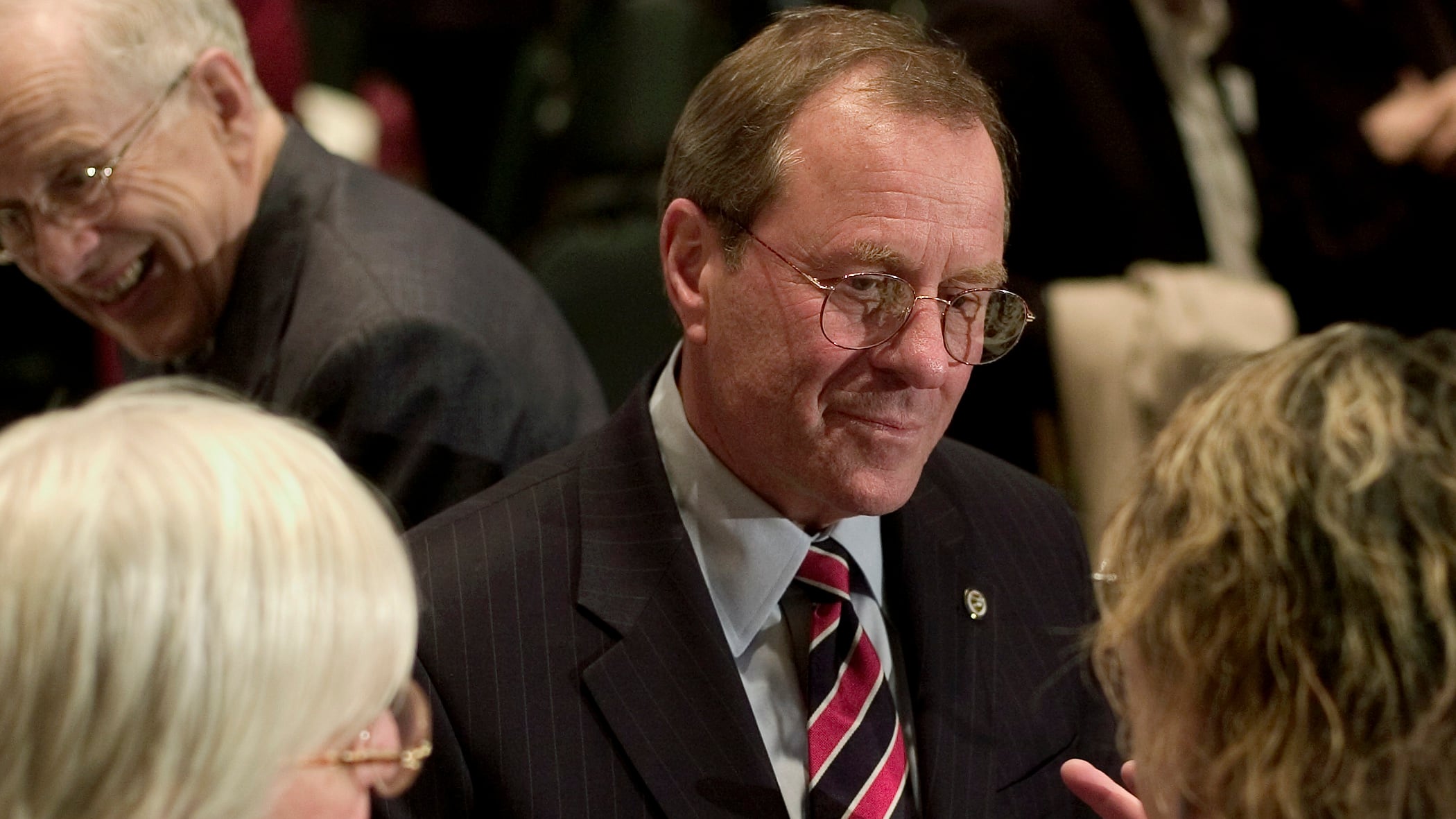This story was produced by the Oregon Journalism Project, a nonprofit newsroom covering the state.
Two newly filed ballot initiatives would open Oregon’s primary elections, which currently exclude voters not registered with the parties holding the nominating contests.
Election reformers have been trying to change Oregon’s primary system for nearly two decades. What’s different this time is that one of the three chief petitioners of the initiatives is an unlikely champion for change: former Gov. Ted Kulongoski, a Democrat who arguably contributed more to his party’s control of Oregon politics than anybody else.
In labor circles, Kulongoski, a lawyer who counted unions among his clients, will always be known for shepherding the Public Employee Collective Bargaining Act through the 1973 Legislature.
That law went further than those in the few other states that then allowed public employees to bargain collectively. It covered all public employees, not just a select few, such as police and firefighters, and it allowed most public employees to strike. Collective bargaining gave Oregon’s public employee unions the power to build the sophisticated, well-financed political operations that have dominated state and local elections for decades.
Kulongoski rode that wave of Democratic power. He served in the Oregon House from 1973 to 1975 and the Senate from 1978 to 1983; worked as appointed insurance commissioner from 1987 to 1991; and then won election as Oregon attorney general in 1992 and as a justice of the Oregon Supreme Court in 1997. He left his position on the state’s highest court in 2001 to run for governor, capping his career with two terms in Mahonia Hall from 2003 to 2011.
The former governor says he remains a proud Democrat but is disillusioned with the condition of Oregon.
“I don’t think the process is functioning in the broadest interests of Oregonians,” Kulongoski says. “It’s working for interest groups and people with money.”
He sees two ways to fix things: elect different kinds of candidates, or change the process. And as long as special interests dominate the parties’ nominating primaries, Kulongoski says he thinks the same kind of candidates will get elected.
“If you want to change the outcomes,” Kulongoski says, “I have come to believe you have to change the process.”
The initiatives he and two co-chief petitioners—former state Rep. Cheri Helt (R-Bend) and Andrew Kaza, co-chair of the state council of the Independent Party of Oregon—have put forward are both called the “Voters Fairness Act.” Initiative 55 would amend the Oregon Constitution to eliminate partisan primaries, and Initiative 56 would create a new process in which all candidates would be listed on a single ballot, with the top two vote-getters advancing to the general election.
Previous efforts to open Oregon’s primaries (as California, Washington and other states have done in various ways) have failed twice at the ballot (in 2008 and 2014) and have fallen short of qualifying for the ballot at other times, most recently in 2024.
In the past, proponents based their case for change in part on the premise that the current primary system tends to reward more extreme candidates: Democrats who veer to the far left and Republicans to the far right. The reformers’ hope was that by opening primaries to nonaffiliated voters and advancing the top two vote-getters, regardless of party, the electorate would move more to the middle. Call it the moderation argument.
Now, the effects of Oregon’s motor voter law (which went into effect in 2016 and automatically registers to vote anyone obtaining or renewing a driver’s license) have added another element to the impetus for change.
Reformers point to a fundamental unfairness of the current system. In 2014, for instance, when voters last considered an open primary measure (Measure 65, which failed 66%–34%), just 24% of Oregon voters were unaffiliated with any party. Now, the share of nonaffiliated voters has jumped to 37%, and when you add minor party voters, fully 44% of all registered voters may not cast a primary ballot.
The Democratic and Republican primaries are funded by taxpayers, not the parties, Kulonogoski notes, so nearly half of all Oregonians are paying for something in which they may not participate and, of course, are still affected by the elections’ outcomes.
“Right now, the special interest groups don’t have to communicate with those voters, who tend to be left of center socially and right of center economically,” Kulogoski says. “I just think it’s logical that the more people who are involved in elections, the better the outcomes will be.”
The former governor says he’s confident the initiative campaign can raise the money it needs to communicate with voters, who he thinks are more concerned than ever about the state’s future.
“I’ve explained what we’re doing in private conversations with friends,” Kulongoski says. “I tell them, ‘If you think things are going great right now, don’t listen to me.’”
The campaign must gather 156,231 valid signatures to qualify the constitution-amending Initiative 55 and 117,173 signatures to qualify Initiative 56 for the November 2026 ballot.

